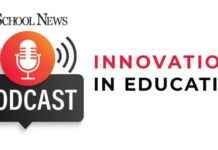Education technology plays a crucial role in shaping the way students learn and engage with educational content. By incorporating technology into classrooms, educators can create more dynamic and personalized learning experiences for students. From interactive multimedia tools to adaptive learning platforms, technology offers a wide range of benefits that cater to diverse learning styles and needs.
One significant benefit of technology in education is its ability to enhance student engagement. Through the use of multimedia tools, educational games, and interactive simulations, students are able to interact with complex subjects in a more enjoyable and accessible way. This not only helps in retaining their attention but also improves their understanding of the material. Additionally, technology allows for personalized learning, where lessons are tailored to individual student needs based on their strengths and weaknesses. This ensures that students are neither bored nor overwhelmed by the content, keeping them engaged and motivated to learn.
Moreover, technology plays a key role in accommodating different learning styles among students. Visual learners can benefit from videos and infographics, while auditory learners can use podcasts and audio lessons to absorb information better. Kinesthetic learners, who learn best through hands-on activities, can engage with interactive simulations and educational games. This flexibility in learning approaches helps students learn in ways that align with their unique styles, enhancing comprehension and engagement.
Furthermore, technology offers students access to vast resources such as online articles, videos, and e-books, promoting self-directed learning and critical thinking. Collaborative tools enable students to work together, share ideas, and give feedback in real-time, fostering teamwork and communication skills. By embracing personalized learning, resource access, collaboration, and digital literacy, students can benefit greatly from the use of technology in education.
Overall, the impact of technology on student learning is profound, reshaping traditional teaching methods and providing students with the skills they need to succeed in the digital age. By staying up to date on the latest education technology trends, educators can continue to create more effective and adaptable learning environments that prepare students for future challenges.







